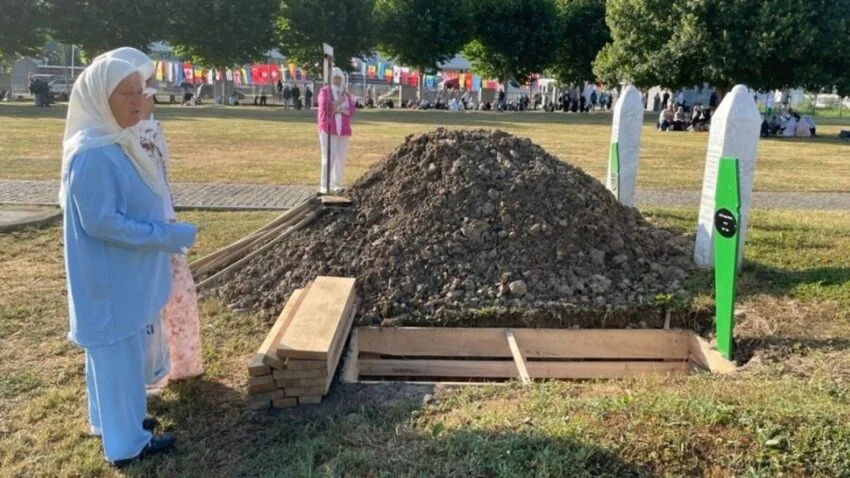On July 11, seven more victims of the Srebrenica Genocide will be laid to rest at the Memorial Center in Potočari, marking the 30th anniversary of the massacre.
Among the victims are two 19-year-olds, Senajid Avdiq and Hariz Mujiq, who were killed in July 1995. Also to be buried are Rifet Gabeliq, Hasib Omeroviq, Sejdalija Alliq, and Amir Mujçiq.
The oldest victim being buried this year—and the only woman—is Fata Bektiq, who was 67 years old when she was murdered.
More than 150,000 people are expected to attend today’s memorial, including high-level delegations from around the world.
Present in Bosnia and Herzegovina are:
- A senior U.S. State Department delegation led by acting Assistant Secretary for Europe and Eurasia, Brandon Hanrahan;
- The Duchess of Edinburgh, Sophie Helen Rhys-Jones;
- Foreign Ministers of Sweden and Denmark;
- UN Under-Secretary-General for Political and Peacebuilding Affairs.
As of today, 6,765 victims have been buried at the Srebrenica–Potočari Memorial Center, while approximately 250 others have been buried elsewhere at the request of their families.
The Army of the Republika Srpska, a Bosnian Serb entity, killed around 8,000 Bosniak men and boys in Srebrenica and surrounding areas in July 1995—a crime recognized as genocide by both international and domestic courts.
In 2007, the International Court of Justice in The Hague ruled that a genocide was committed in Srebrenica, which was then a UN-protected zone. The court also found Serbia guilty of failing to prevent the genocide and for not prosecuting the perpetrators.
In May 2024, the United Nations General Assembly adopted a resolution declaring July 11 the International Day of Remembrance of the Srebrenica Genocide.
To date, over 50 individuals have been convicted for war crimes and genocide in Srebrenica, receiving a total of over 700 years in prison. Notably, Radovan Karadžić and Ratko Mladić—the wartime president and military commander of Republika Srpska—have been sentenced to life imprisonment.
During the 1990s war in Bosnia and Herzegovina, over 100,000 people were killed, more than 32,000 went missing, and 7,600 remain unaccounted for—including around 1,000 victims of the Srebrenica genocide.







